Interview with Pat Waters in Lampasas, TX, 2010
©
2010 / Bruno Michel;
Fotos Bruno Michel
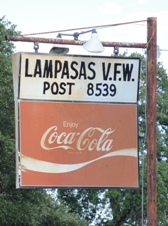
After
I heard Pat Waters live for the first time, there was a chance for an interview
just a few weeks later. At the V.F.W. post 8539 of Lampasas, just a few miles
away from our home. Contrary to common belief, the posts of V.F.W. are not
restricted to veterans but open to the public. Mostly buildings at the edge
of town, with pool tables, a bar, a jukebox and a stage. And very reasonable
prices, too. Often you can listen to local talent at these posts, but every
now and then there are known names appearing on stage. 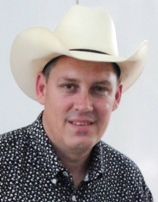
PW:
PW: I own a company and have around 35 people
working for me. Besides that, I have three children and a wife. To feed us
all requires quite an amount of money. So far it has worked out pretty good
for us.
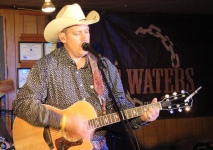
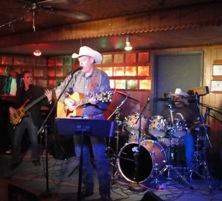
PW: Hopefully I see myself being able to make a living from doing what
I love. I want to stay a traditional country musician that never failed in
his business goals.
PW: Not gonna happen. No way. I love what I do
and I do it with passion. When it comes to that point, itís no longer about
the money for me. Itís about staying true to yourself. Thereís still a large
population out there that loves to listen to traditional country music.
PW: Normal every day situations that I come across.
Whether that be something fun or something tragic. If you write about real
things then I believe you have the majority of the population being able to
identify themselves with what you sing and relate to it.
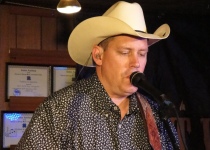
PW: I would love to do a duet with Merle Haggard.
Or with George Jones.
PW: After I run (laughs)? Since I am from friendly
Texas, Iíd tell him: ďWelcome, hope you love it.Ē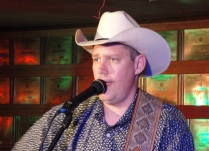
PW: People who want to profit without putting
their share in. That drives me insane. No matter what you do, you need to
put effort and time in. People who donít do that irritate me a little bit.
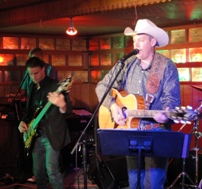
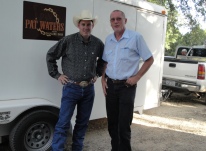
PW: What the hell are you doing in the music
business (laughs)Öno, seriously, I donít knowÖMaybe something personal like:
Run me through a normal Pat Waters day.
BM: Ok, please do.
PW: Well, with that business going itís being
ready at 6am, do some work for the company since several families depend from
itís success. Then working the music business, which we currently are still
pushing hard. Try to improve, learn or write songs,listen to stuff that may
fit the next album, get connected, all these things.
BM: That means youíre lucky to get 4-5 hours
of sleep every night. How does that work in the long run?
PW: I get that much if Iím lucky. Well, you get
used to it somehow. Look at me: I am a healthy guy (laughs).
PW: You bet, I appreciate it.